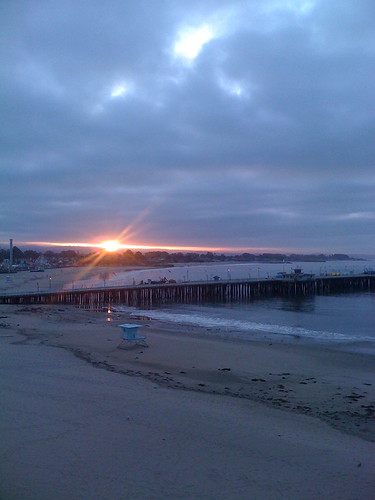I'm back in the main room for the Tuesday morning keynotes. We've got
Chris Luebkeman talking about
Urban Futures,
Joichi Ito talking about
Creative Commons: Creating Legal and Technical Interoperability and
Christa Hockensmith talking about
Jackhammers, Polymers, and Diamonds: New Applications in Explosives. Hoping they'll be a demo on that last one, and with
ETech you
never know...

...and here's Brady ForrestBrady kicks us off, and this morning we've got an eclectic programme...

Chris Luebkeman talking about Urban FuturesFirst up is
Chris Luebkeman who is reminding us that cities are for people and everything there is supposed to help people thrive. In Japan they're reaching peak urbanism, and they're facing the problem of what you disassemble in your urban environment when it's no longer needed.
The population is also aging, you need to design your city to reflect aging urbanism. If older generations cannot cycle, what type of vehicle can they use to increase their reach and access? How do you create systems to allow you to be mobile for as long as possible. What should you e designing for ages 0 to 100?
Cities are not designed for the abandonment of downtown, this has happened in Johannesburg where the centre of the city has been almost entirely abandoned because it was no longer safe to be there. Everyone has moved out to the suburbs.
The modern bread line, how can you increase the resilience of our urban areas? Fuel is necessary for cities. While many of us, the digital elite, could continue to work if we couldn't drive. This isn't true for most people.
If we're going to move towards an eco-friendly world, what are the things we should be doing. What should we not be doing? In the end of the day eco-cities are about reducing our impact, both as individuals, but also as a community.
How do we turn today's cities into ecological cities, 100 years ago the were only 8,000 cars in the USA, only 144 miles of paved road and it had a 10mph speed limit in the cities.
Studebaker offered both an electric, for in city, and gasoline, for long distance touring, engine options in their horse-less carriages. In some ways we need to go backwards...
I confess that in 1901 I said to my brother Orville that man would not fly for 50 years... ever since I have distrusted myself and avoided all predications - Wilbur Wright, 1908
The future is always over sold and under imagined. Nobody imagined 100 years ago that the
Northwest Passage would be
open due to something we have done...

Urban ecologySo the city of tomorrow, what is that? Well in the 1950's it was sky scrapers, and we did that. But we have to look and see what the drivers for change are now. If you plan cities for cars and traffic, you get cars, if you plan cities for people you get people.
If you could cut and paste anything in and out of your community, what would it be?

Joichi Ito talking about Creative CommonsNext up is
Joichi Ito talking about the
Creative Commons license...

The core 6 licenses...and amoungst much other good stuff he announced
CC0 which is a license which tries to make it easier to put things into the public domain. Because oddly putting things into the public domain is actually quite hard.
CC0 gives people who want to give up those rights a way to do so, to the fullest extent allowed by law. Once the creator or a subsequent owner of a work applies CC0 to a work, the work is no longer his or hers in any meaningful legal sense. Anyone can then use the work in any way and for any purpose, including commercial purposes, subject to rights others may have in the work or how the work is used. Think of CC0 as the "no rights reserved" option.

Christa Hockensmith talking about explosivesOnly possibly the last keynote of the morning, apparently there might be a surprise talk, is
Christa Hockensmith who is talking about new uses for explosives.
The usual uses for explosives; munitions, bombs. fireworks, explosive materials for the military, mining excavations, roads and demolitions. But there are more unusual uses; power tools, diamonds, polymeric tools and some more untested and off-the-wall ideas.
Explosive assisted tools. Many tools are powered with hydraulic fluids or compressed air. Therefore compressors and fluid lines must be available at the site where the tools are used. Small explosive cartridges could be used instead.
This particular tool is not in use, because I just made it up two weeks ago...
Although this tool is not in use, other similar tools are in use. We can use this idea for nail guns, spray guns, chipping tools and various other tools ordinarily powered with air or fluids. Explosive powered tools can also be used to give easier access to inaccessible recreation or search sites. An explosive-powered pin insertion tool could be used in rock climbing or rescue operations.

Synthesizing diamonds...The production of industrial diamonds. Each year there are almost 220,000 lbs of industrial diamonds synthesized. This is done by explosion...
Explosive-aided polymers. Polymeric materials are used as a coating around other chemicals that are to be delivered during a manufacturing processi. Small explosive charge ruptures the polymeric exterior coating freeing the chemicals for delivery at the appropriate place and time. Polymeric coating protects the deliverables and increases shelf life during storage.
Untried and untested. A large explosive can create industrial diamonds, what about very small explosions? Very small detonations that implode rather than explode the tumor may prevent uncontrolled bleeding and the body will clear the debris. Even smaller detonation may clear plugged arteries and blood vessels without running balloons through those vessels.

Aaron KoblinFinally a surprise talk from Aaron Koblin about using Amazon Mechanical Turk to
synthesize music, how utterly and delightfully odd...
...and we're done.












































